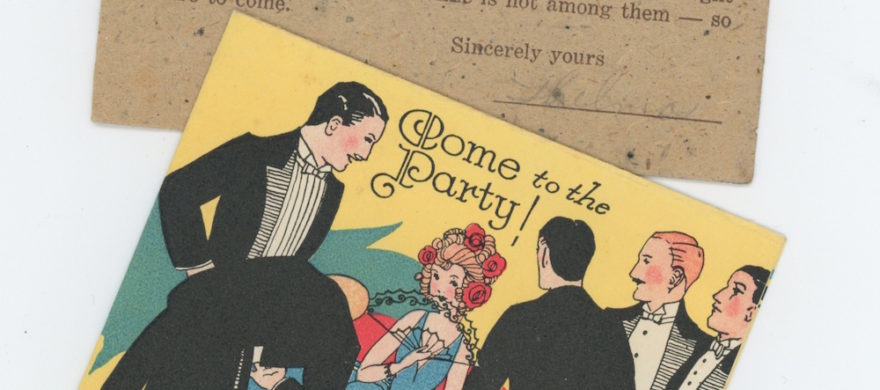
This might surprise you: I have a Master’s Degree in communicative disorders. That translated on a paystub to speech-and-language therapist, and the disorders I expertly remedied were maladies like lisps in the young, stuttering among the adolescent, and aphasia with stroke patients. Now, however, in my retirement from that field, I’m ironically colliding with more and more communicative roadblocks—which I find disorienting. I have become my own disordered client. I miss my days of fluency; I long for the time when I could retrieve a word the nanosecond I needed to use it. I am trying hard not to blame my chronological age. I prefer to blame the age in which I live.
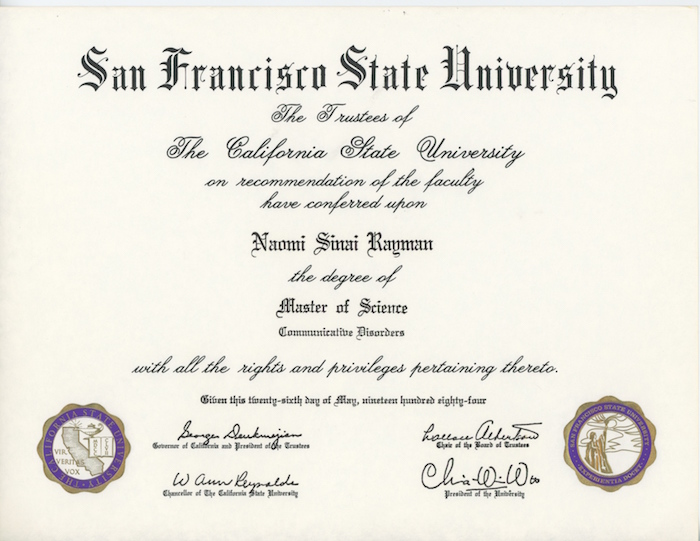
As for communicative elegance, I miss the old tried-and-true forms of letter writing. If it weren’t for me, stationery stores in my area would have gone out of business long ago. Give me, please, envelopes with my return address embossed on the flap. Let me cull the racks of greeting cards for the perfect get-well note. I have a stock of sympathy cards ready to go. As soon as someone drops dead, I’m at the ready with a beautiful card to convey my sadness over the loved one’s departure.
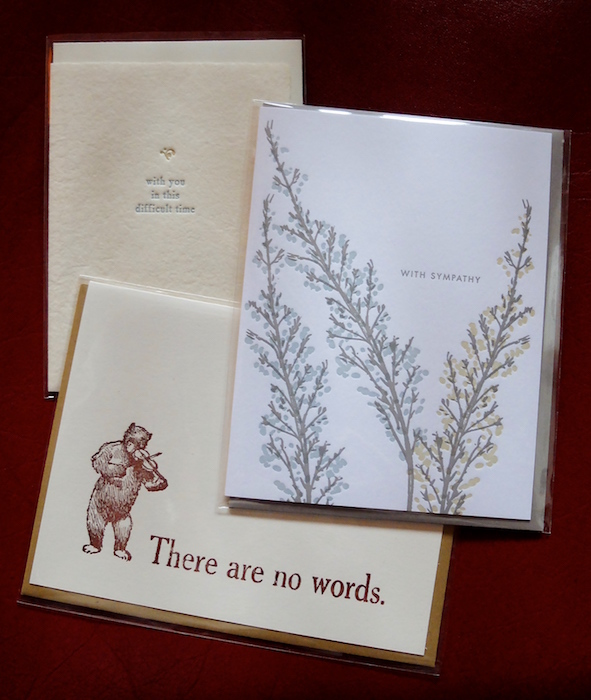
But, where can I find those aerograms (aerogrammes?) of long ago with their sky-blue expanse tempting the writer to think, “I have a yawning blank slate on which to write to my father from Europe”? I must ask him to please send money to get me through the remaining weeks here as I find my European adventure inhales my 1974-Europe-on-$5/day-allotment. And, I’ll write legibly if microscopically–filling the aerogram’s expanse with my loopy handwriting. I’ll consume every inch all the way to the gummy margins and the news will be all about the sights and sounds and smells of Europe. My dad will think, “She has so much news and yet sadly is limited by the dimensions of this sheet of paper. She is so thoughtful to write to me. She probably needs some extra cash.” I’ll leave off the parts about riding on the back of motor scooters through the alleyways of Paris, followed by a night of passion (or just sex). Probably wise not to mention the run-in with the Italian police the night a group of us drank too much vino and one (extremely handsome) Italian young man threw a chair into the café’s plate-glass window. This news will just take up precious real estate on the aerogram.
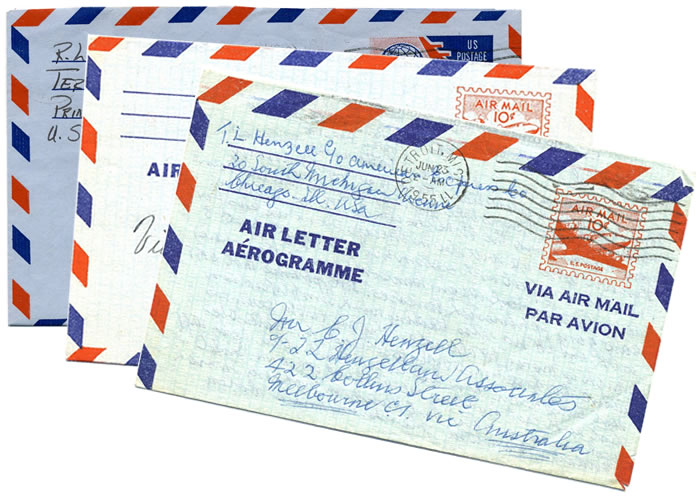
I sent the letters home from the American Express offices adjacent to the squares, piazzas, and avenues across Europe. And, those offices are where I’d go, two weeks (!) later, to collect my funds. Except for this one time. I had mailed the letter from Rome and had expectantly appeared at the Paris Amex front desk 10 days later after depositing my increasingly shabby backpack in the anteroom of the drab office. No letter was forthcoming. No letter meant no money. And, in Paris, having fewer-than-expected resources was a complete bummer. In fact, after spending weeks abroad and burning my way through hundreds of parental dollars, I had to cut my trip short. This confirmed my notion, of which I had convinced myself: My father wanted me home. He was not playing fair, which wasn’t like him. And, a few hours after arriving home and dumping my now thoroughly disgusting backpack next to our washing machine, I confronted my dad in a voice so whiny and accusatory that I could see his eyes beginning to tear. As he waxed poetic about how much he missed me, how relieved he was that I returned home safely, and how thrilled he was that I enjoyed myself, I barked a response that actually caused him to cry. Some choice phrases included, “How could he?” “Didn’t I deserve to be happy?” “I was counting on him!” Clauses that now make me nauseous even as I write them. It turns out my father never received my letter from Rome. I know this because that letter arrived a couple of weeks after I had returned home.

What I don’t miss, however, are telegrams. I have personally received only a couple in my life, and neither of them were good news. My parents, too, seemed to attract bad news like metal filings to a magnet. Distressing news arrived on these bland-colored small sheets of paper looking like anonymously sent ransom notes. Stop. The ones I recall coughed up news of a fatal car accident (a cousin); stop. Cancelled travel plans; stop. Reunion cancelled; stop. And, one epic news flash of a nephew’s murder. Stop. Ok, I’ll stop with the stop. No one probably remembers what I’m referring to anyway.
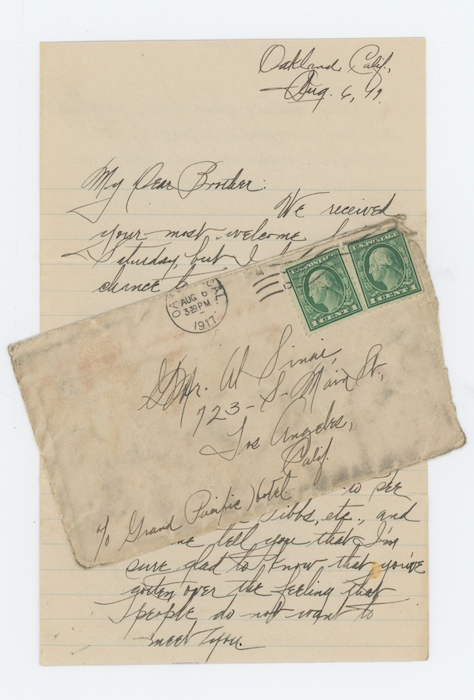
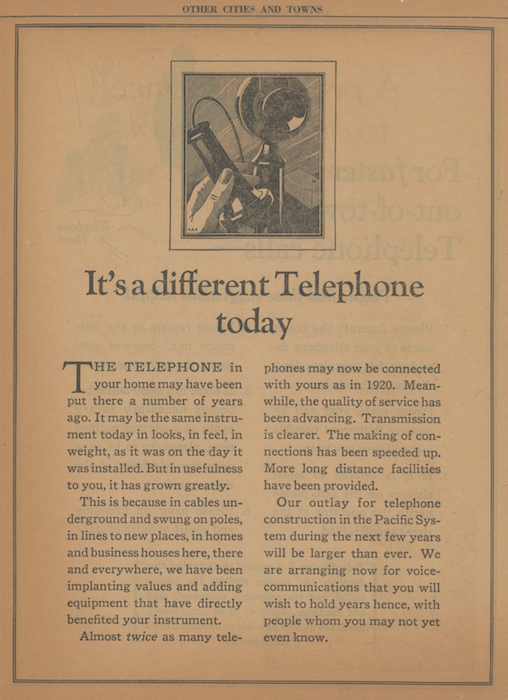
But, speaking of telegrams, who doesn’t miss Western Onion? That being a send-up of Western Union’s telegram-delivery service. Disappointingly, I have received only one. Actually, it was for my husband. A strapping young man came to our door during Marty’s 40th-birthday celebration. The messenger sported an askew cap and an epaulet-adorned jacket and held a telegram in his hands like it was the Torah. Placing a red-and-white sash that read, “Kiss Me. It’s My Birthday,” around Marty’s neck, the telegram bearer proceeded to tear open his jacket and fling aside his hat in a Mary Tyler Moore-meets-Minneapolis manner to reveal his astonishingly fit torso and teeny tiny underpants. He sang “Happy Birthday” to the birthday boy. I mean, who wouldn’t miss that?
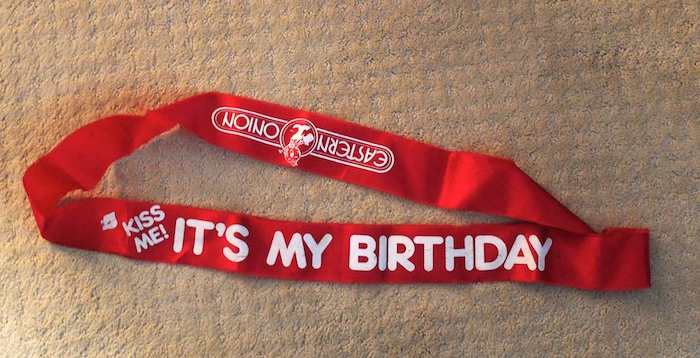
Here’s something else I miss: Christmas letters. Not the short nonsense found on social media. I’m talking about the luscious, bloated testimonies of success, joy, health, and happiness. The ones I’m referring to came typed, single-spaced and the writer used up both sides of the flimsy paper before lovingly folding and inserting it into a glittery holiday card with an artistic representation of a fireplace adorned with Christmas stockings which were, as they should be, trimmed with velvety swatches of fabric. Digital shots weren’t part of the Yuletide repertoire back then—at least not that I can remember. You had to trust the sender’s writing skills to evoke how good looking the new wife was or how adorable those grandchildren were. If they mentioned a vacation to Tasmania, it was up to you to go look up what that locale had going for it. Isn’t that why you held on to the World Book Encyclopedia?

Communication was simpler and less disorderly back then.
But when email started to replace the mailed-with-the-Christmas-card annual friends’ updates, I was optimistic about the possibilities. First of all, the internet allowed us to throw out the World Books. Another plus? Reading email missives now took little time; I could use my mouse to hastily scroll to the salutation. Or, a particularly obnoxious letter, once cut and pasted, made quick fodder for a sarcastic email to our mutual friend with the insertion of OMG before sending it off. Time to get creative with cutting and pasting.
This, in fact, is what I thought I was doing when, upon finishing a lengthy year-end monograph from a friend we met on an cruise several years prior, I forwarded the email to my husband with the following insertion at the top of the email:
“More than I need to know.”

About an hour later came a reply—not from my husband but from the original email writer:
“I am so sorry that our Christmas letter offended you. I will take you off our annual list.”
Here’s where my communicative skill set actually paid off, I thought. No more soporific musings from this guy; I was on his shit list and I was better for it. But, I felt so guilty because I had never intended to let him know how I actually felt—I was trying to live an honest, authentic life and not be a hurtful wise-ass. I was simply sharing my frustration with my husband so that we could roll our eyes simultaneously as one does in a loving marriage.
Instead of letting this go, though, I communicated with the writer once again—this time intentionally:
“Otis, I am sorry that I hurt your feelings. It was never my intention to do so. Instead I thought I was forwarding the message to Marty and mistakenly I hit “reply.” I imagine that something like this may have happened to you at least once.”
Otis replied with the most amazing response—although it took him two weeks to do so:
“Actually, Naomi, your email made me think about the fact that this letter contained information that was indeed more than you needed to know given the brevity of our friendship. From now on, I will send out two versions of these letters so that our friends like you are spared the lengthy details.”
I never received another year-end, wrap-up email but there he is on Facebook. So I can read snippets (or not) if I so choose. I love happy endings.
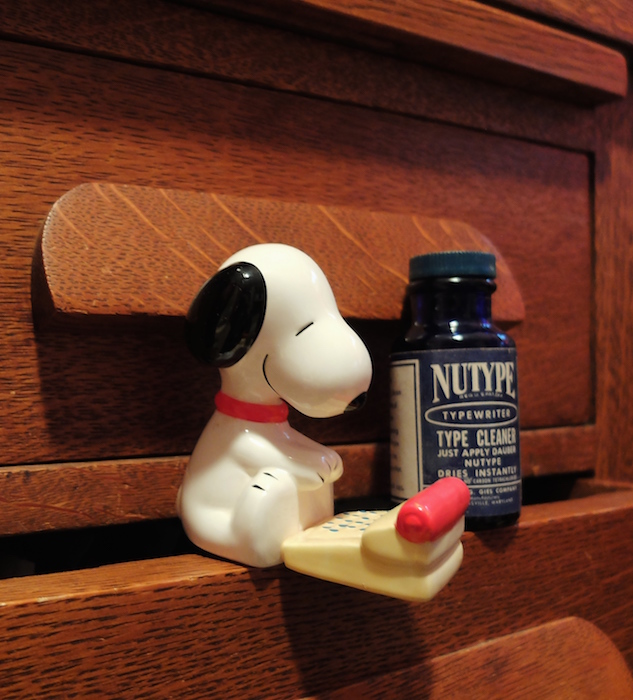
But before there was a simple error in button pushing where emails were concerned, and prior to the post office’s tardiness at delivering an aerogram from Europe to its intended destination in the States, and way before I was picking out personalized stationery to have on hand for thank-you notes, there was my mother communicating with her young adult son through the mail. Monthly. Like clockwork.
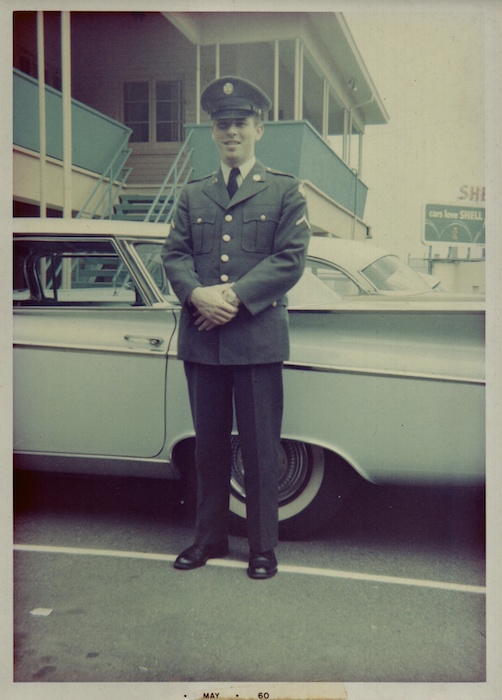
My mother would wait for her son, Michael’s, letters like an underfed wild animal. If it were around the time a letter might arrive, my mother would pace, check her watch, open and shut the living room curtains to see if the mailbox showed evidence of delivery. I was just a small child watching my mom and her frantic obsessive behavior wondering if one day I too would hold such power over her. I must have known, even then, that I would not. After all, she lived with me; our bedrooms were adjacent to one another; I rode in her car and sat at her kitchen table; she dried my hair after a bath and kissed me goodbye when I left for school. This intimacy played out in a parallel universe to the one that she shared with her son, Michael, who was 12 years old when I was born. He was never allowed—or at least invited–to live with us. In fact, in 1941, when Michael was 2 and my mother and Michael’s father divorced, my young brother went to live with his aunt and never again lived with his mother. Our mother. I can’t tell you what a loss that was to have missed out on being in the same house, on a daily basis, with such an extraordinary, iconoclastic woman. And the loss to my mother of not living with her boy—never packing his lunchbox; not going to his school performances; did she ever meet even one of his teachers or friends? The enormity of such grief undoubtedly initiated her battle, for the rest of her life, with her heart’s health.
Michael did not live a long life. He died at the age of 25 under what in those days were termed mysterious circumstances. To me, however, at age 12 when he died, there was nothing mysterious about any of what I was witnessing at home: a mother whose sorrow was swiftly killing her and rupturing the lifeline she and I shared together. The day Michael died, she took to her bed, and each night thereafter I would bring her both her 5pm bourbon-on-the-rocks and the daily mail.
About a month after Michael died, a letter came addressed to my mother in Michael’s boyish, scratchy penmanship. I delivered both the letter and the cocktail to her and stood sentry outside her bedroom door because even I knew that this weird turn of events was unexplainable and unprecedented. But, I never heard a peep from inside my mother’s bedroom other than the clinking of ice cubes as they rattled against the glass and the stationery rustling in her hands. I heard her clear her throat and blow her nose. When I went to check on her, I saw the bourbon had been drained from her cocktail glass. But, the letter was nowhere to be seen. She coolly asked me if I were hungry and if I might help her with dinner preparation. I tell you now that even I could have used a shot of bourbon. Instead, I poured her another round, and she didn’t refuse it.
My mom died two months later. Probably it was a broken, make that shattered, heart. Her doctors said it was not mysterious; it was a heart attack. That was when I started pouring evening cocktails for my dad, who was just as needy of a stiff drink as my mother had been.
Then one day I discovered the letter that Michael had written. Placed by my mom, perhaps haltingly and with tenderness, between her nightgowns, the letter seemed to levitate—begging for attention. This was the letter that she had received after he had died. The envelope had been addressed to my mother, but the letter itself unbelievably began with:
“Dear Carol”
Michael went on to say how much he missed her, loved her, and would see her soon. He was thrilled that soon they would have a child together and he would find a home for them that was comfortable and cozy – just as any young couple would dream of as they started their life together. He signed it:
“With love from your husband, Mike”
Michael must have sent his letter to Carol in an envelope addressed to my mom; perhaps he sent a son-to-mother letter in the envelope intended for Carol. There is no way for me to know. I do know, however, that my mother was informed of her son’s marriage and his impending fatherhood through a letter never intended for her. And, she died never understanding why communication had been so cruelly distorted and certainly disordered.
Reply All,
![]()


Good to have you back with a fresh blog post. Another fine effort.
I sure appreciate your enthusiasm and support! Thanks for writing!
So very interesting as usual, Naomi! Other than the fact that I think you need some handmade cards! LOL
I ALWAYS need stationery — and your handmade works of art in the form of cards require their own blog! Do you have a website? Thanks for taking the time to comment 😉
Do they award Pulitzer Prizes for blogging? If so, you deserve one. Glorious writing, as always. Heartbreaking and moving, smart and hilarious. How do you do it? Whatever it is…. do more! I’m addicted. 🙂
Oh, shucks, Tor…just like Bob Dylan, I’m not worthy of literary prizes 😉
Let’s be clear, though, I would definitely accept one. And, not take my sweet time doing so either!
I sure am flattered by your lovely comments. Thank you!
Everything fabulous here as always. And, yes, I am a click-bait devotee, so I went right to your P.S. xoxo Janet
Lovely to read your comments, friend! And, thanks awfully for the nice posting of me on your podcast. Synchronicity, baby!
An incredible story with a tragic ending….you are such a gifted writer. I love reading these even when the ending requires tissue.
Thank you.
I am so happy you had a chance to read it, V. Thank you for your sweet and gracious comments.
I’m speechlessness! You write with such power. Amazing! Now the pieces come together about Michael and you Mum. I think I’m in need of that evening cocktail and it’s only 9am on a Saturday in Melbourne Australia. Shabat shalom my darling xxxx
No time like the present, Hadassa, to have that cocktail. Thank you for taking the time to read and respond to my blog. It means the world to me–and hearing from the other side of the world from me…well, you get my drift, I’m sure! Love you!
What a fantastic read. I miss the days of telegrams, long letters and holiday cards. I still send cards for the holidays and a little something special to my niece and nephew by mail every season with a handwritten note. I think it is fabulous to get mail❤
What a lovely message. Thank you. And how lucky your niece and nephew are to receive a handwritten note from their undoubtedly favorite-to-them aunt! I too love getting mail, thin as it is these days.
Wow. Beautiful, powerful and intimate. A love letter to your mother and to old-school letter writing.
Thanks, Lenny. I’m awfully honored you enjoyed this blog so much.
Oh my, Naomi, another powerful piece. So sad about your Mom and brother. I, too, got a “telegram” on my 60th birthday, a “UPS” guy who stuck a rose in my teeth, stripped to his skivvies, set up his ghetto blaster, and gyrated in front of 30 friends and relatives including my stunned 86 year old step father. I also miss stationery and I warehouse greeting cards so I’m always at the ready.
Thank you for taking the time to fill me in on your stripper, too. Darn, those were good times, right?
All kidding aside, I always appreciate you taking the time to read and comment on my blogs. Your words and thoughts and commentary mean the world to me.
Nomi wow! That’s all I can say. Thanks for sharing.
Thanks, pal. XO
HOLY COW, THIS IS THE BEST. FROM YOUR GENERAL OBSERVATIONS, YOU EVOLVE TO A VERY INTIMATE AND SPECIFIC EXPERIENCE WITH SUCH CAPTIVATING WORDPLAY. THANK YOU FOR SHARING SUCH A MOVING STORY.
Thanks so much, Stephanie. That is a beautiful comment and I appreciate receiving it very much. XO
The writing, as always is amazing. But the journey you take the reader on is truly astonishing. A true gift. Thank you my friend. I don’t know how you do it; just keep doing it. I’m addicted. ?
You’re making me blush, kid. Thank you for coming along with me on this personal journey that makes me both relive and understand in a new way where I come from. It seems less lonely when I have good company along for the ride. XO
Amazing writing Naomi. The stories that you weave about your family memories keep drawing me in to read more. Thanks for sharing your talent. steve
Thank you for your kind and generous words, Steve.
So sad and evocative of another life in another era. What an amazing memory you have, the details…truly a memoir from the heart.
Thanks for your comments, Valerie. I love hearing from you…always!
Thank you, Naomi…. Love your way of tying the past and present together! Beautiful writing.
Thank you, Judy, for your kind words. It means a lot to me!
Oh, Naomi. I’m reminded of the Alfred Hitchcock Hour, oh so many years ago, where the ending always grabbed you by surprise. Beautifully written and certainly NOT more than we needed to know. Love from your Secret Admirer.
Wait! I thought I was your secret admirer. Thank you for reminding me of that Hitchcock theme song, which is now stuck in my brain!
But, also!!!! Thank you for your generous words of praise. XO
P.S. Did you watch Twilight Zone?
Dear Naomi,
I am on a journey when I read your blogs. With such eloquence you share your “story” and make me feel like I am the only one listening to what lies in your heart.
It is such a privilege. Thank you!!
Sara
Dearest Sara, what a lovely comment to my recent blog. Believe me, it’s a privilege to hear from you…always! XO
Dear Nomi,
I loved reading this piece. Such a great story teller are you! Personal and authentic! The way you show us, in context and over time, how things are interconnected is amazing! So many points – like stars – from which to shine! Congratulations, my Friend!
Love,
Jules
P.S. Write back soon! 😀
Julia, thank you for your stellar (get it? stars?) comments that, all kidding aside, mean the galaxy to me. Just as you mean the world to me too. XO
I remember it all. I remember all those stationery choices. I got them on Hollywood Blvd at the Hollywood Outlet Store (near Cherokee or Las Palmas). Pale pink Crane’s air-mail stationery that lent to a love letter the feel and promise of a transparent negligee. Yes on the red, white and blue aerograms that let you know somehow American air power was on your side. And, yes to the telegram “stop”. So much fun to read this life-chapter of yours.
xoxox
Janet
What a kick in the letter box, your comments are! Thanks so much for taking the time to share memories of when USPS was not a bunch of letters but a revered institution. Those were the days. But, I must say, the digital age and immediate gratification is my favorite part of email. When I get it right, that is 😉
XO
As usual your story/you, ever thoughtful, made me laugh and cry while re-learning a valuable lesson with authentic touching fashion.
XO
Ashley J.
What a lovely comment, Ash. Thank you for writing and making my day. I’d send you a letter, but I’m outta ink. XO
I’m grateful for your words, stories, images and all the feelings that are stirred in me as I read. Where do I sign up so that I don’t miss a single blog post? Maybe I’ll just send you a snail note for this request.